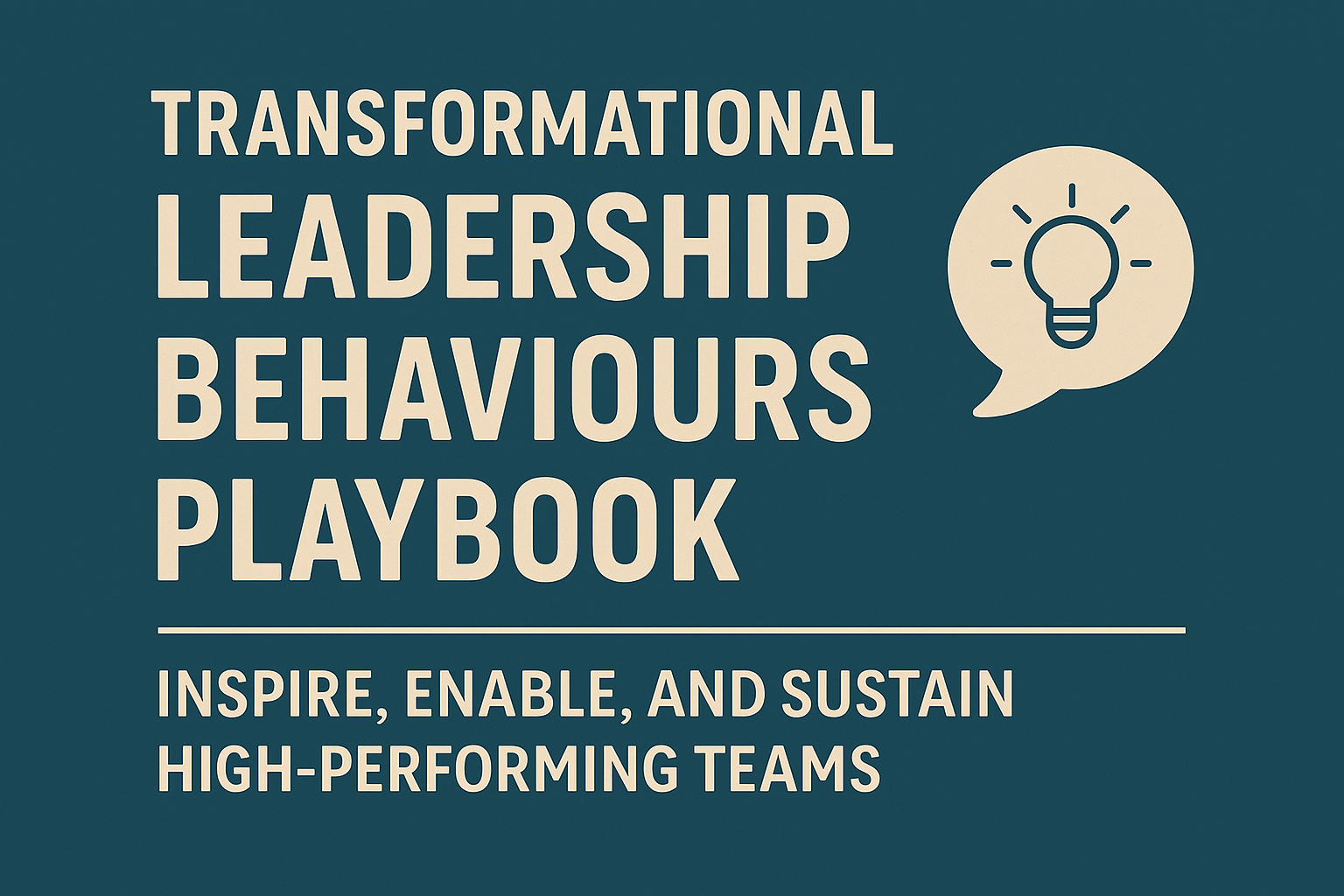Playbook : Transformational Leadership Behaviours Playbook

🌐 Purpose
To equip engineering leaders and influencers with actionable behaviours that inspire, enable, and sustain high-performing, resilient teams. This playbook promotes a model of leadership that supports innovation, growth, and a strong cultural foundation aligned with our digital engineering goals.
⚖️ Principles
- Leadership is a behaviour, not a role or title
- Great leaders create environments where people thrive
- Influence is earned through clarity, consistency, and care
- Leading by example is the most powerful form of culture-building
✅ What Good Looks Like
Transformational leaders:
- Align teams around purpose and outcomes, not just tasks
- Foster autonomy and accountability at all levels
- Create psychological safety and promote trust
- Encourage experimentation, learning, and continuous improvement
- Champion inclusivity, diversity of thought, and cross-functional collaboration
🔄 Core Behavioural Pillars
1. Inspire Through Vision
- Communicate a compelling and shared vision of the future
- Regularly connect daily work to strategic outcomes
- Narrate progress with optimism and realism
2. Model the Way
- Demonstrate desired behaviours (e.g. feedback, humility, reflection)
- Take ownership, especially in failure
- Hold yourself accountable to the same standards you expect of others
3. Enable Others to Act
- Remove blockers, not impose direction
- Invest in coaching, not just task allocation
- Empower decision-making at the point of expertise
4. Challenge the Status Quo
- Proactively surface and question assumptions
- Encourage experimentation and tolerate failure as a path to learning
- Invite constructive dissent and elevate overlooked voices
5. Celebrate and Grow
- Recognise contributions (big and small) with specificity
- Create rituals for reflection and learning
- Give clear, kind, and consistent feedback
⚙️ Day-to-Day Actions
- Begin standups or planning sessions by reconnecting to the mission
- Host regular listening circles or skip-level 1:1s
- Share mistakes in public forums to normalise vulnerability
- Use coaching questions instead of giving solutions
- Rotate facilitation and speaking opportunities across roles
- Sponsor someone different from you into a growth opportunity
🔬 Behaviours to Watch For (and Reframe)
| Anti-Pattern | Transformational Response |
|---|---|
| Leading with control and compliance | Lead with trust, context, and clarity |
| Taking credit for team outcomes | Share credit and celebrate others |
| Avoiding tough conversations | Engage in timely, honest feedback with empathy |
| Protecting the status quo | Invite challenge, ask "what are we missing?" |
| Hoarding knowledge or authority | Distribute power and create shared ownership |
📘 Metrics & Signals of Impact
- Team sentiment (pulse surveys, retros)
- Retention and internal mobility
- Psychological safety scores
- Number of coaching conversations held
- Peer recognition and upward feedback
🔑 Governance Link
This playbook supports:
- Policy: Psychological Safety First, Inclusive & Diverse Engineering Culture
- Standards: Lead by Example, Conduct Feedback Loops, Support Inclusive Decision-Making, Foster Blameless Culture, Promote Continuous Learning
📖 Further Reading
- "The Fearless Organization" – Amy Edmondson
- "Turn the Ship Around!" – L. David Marquet
- "Multipliers" – Liz Wiseman
- Google Re:Work – People-First Leadership Research
- “Leadership Without Easy Answers” – Ronald Heifetz